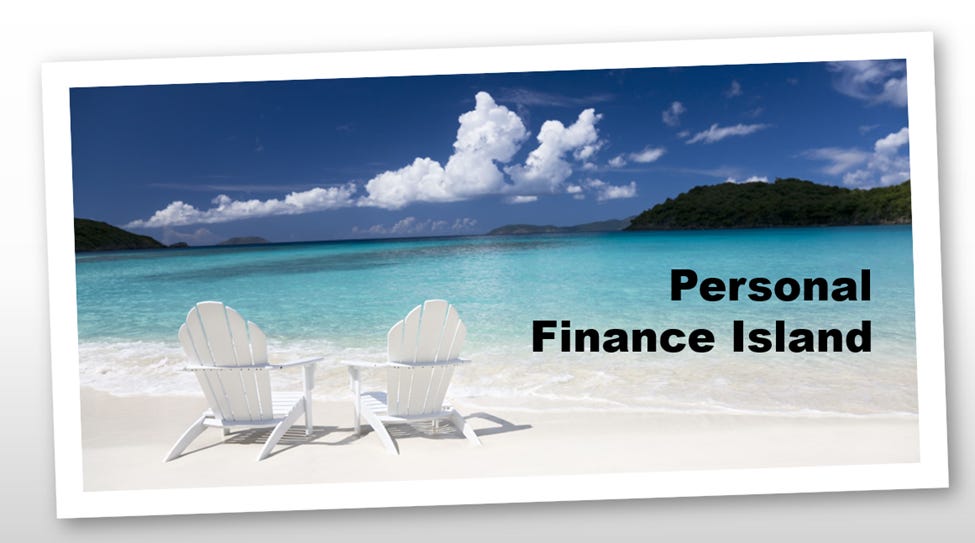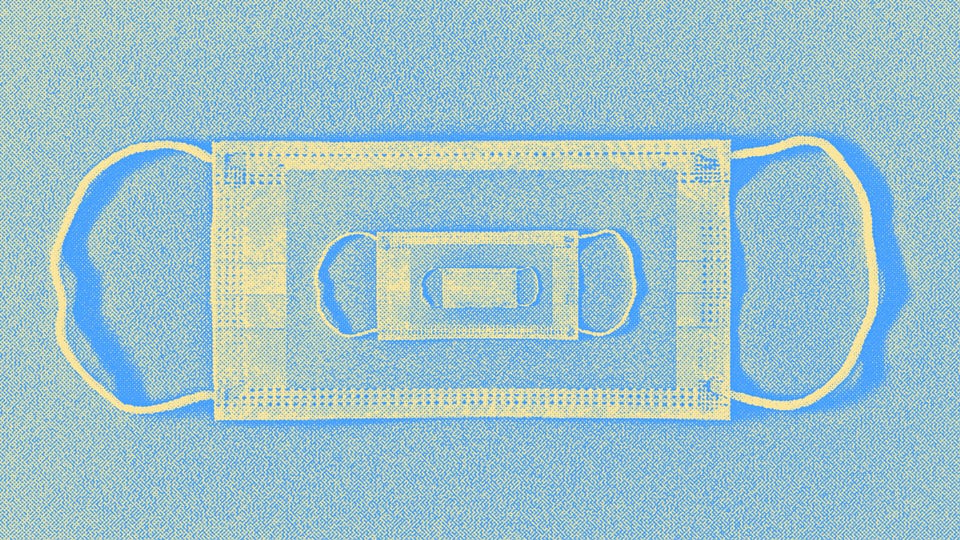📈Where To Put Your Money
With apologies to Richard Hammond…
It’s time once again to take a dive to find the pearls of wisdom in the secluded lagoon of –Personal Finance Island!
Today, we’re covering how to prioritize what to fund with your monthly excess cash flow! We know, try to contain yourselves.
We covered the first three steps to this question in earlier posts. The first step is to set aside some cash for emergencies or short-term obligations (like home repairs or a vacation), the second is to shove money into your 401(k), and the third is to shove money into a Roth IRA. Those recommendations remain unchanged.
To recap:
Despite inflation, it’s prudent to keep some cash in a savings account. We advised somewhere between 3- and 6-months’ worth of your recurring monthly expenses (so, if you spend $5,000 a month, then $15,000 to $30,000), depending on the predictability of your income. That’s to keep you away from the Credit Card Vortex of Doom.
98% of 401(k) plans offer an employer match and the average match is 6%. This is free money that can significantly accelerate your retirement savings. You are foolish not to do this if it’s available. If you don’t have a 401(k), you still have lots of options.
Roth IRAs offer tax-free growth and tax-free withdrawals because you’ve already paid taxes on the contributions. You can contribute up to $6,000 per year ($500 per month) to these accounts. If you make less than $144,000 single/$214,000 married filing jointly, please take advantage.
So: Cash > 401(k) > Roth IRA
Your order of operations is as follows:
1) As soon as you get a job, figure out the minimum 401(k) contribution you need to make out of your paycheck to maximize the employer match. It’s usually around 6% of your salary, so $6,000 if you’re earning $100,000. Do it.
Also, it should go without saying, but make sure your 401(k) contributions are invested. We strongly advise either a target date fund or index fund.
2) Then, if you’re emergency fund needs to be topped off, rebuilt, or established, pay yourself first! Instruct your employer to direct deposit a percentage or specific dollar amount directly out of your paycheck. Don’t let it hit your spending account cuz then that sh*t will get spent ASAP on the big-ticket items that Suze Orman says will keep you amongst the poors:
3) Focus on your emergency fund until you’ve built up to 1- to 2-months’ worth of expenses, depending on your comfort level. Then, open a Roth IRA if you haven’t yet. Redirect some (or all) of what you were saving into the Roth. Do that until you’ve hit the $6,000 contribution limit.
Make sure you’re investing the Roth. If you really want to keep it simple, use the same funds from your 401(k) for your Roth. And you don’t have to wait to build up cash before investing if you buy an ETF. Where mutual funds have investment minimums, ETF minimums are the cost of 1 share. VOO – which tracks the performance of the S&P 500 - costs around $390 as of this writing.
4) Once the Roth is funded, switch your direct deposit back to the emergency fund if it’s still not funded to your comfort level.
To recap:
1) 401(k) match, then buy a target date fund or index fund. Do not touch it.
2) Build up your emergency to equal 1- to 2-months of expenses. Skip to step three if this is done.
3) Open and fund a Roth up to $6k. Invest in a target date or index fund. Do not touch it.
4) Finish building an emergency fund
5) Repeat next year
What’s the Upside?
We know this isn’t exciting but this is the sort of fundamental blocking and tackling that puts you way ahead of your peers (and maybe your parents) at pretty much any age. Get really consistent at these fundamental skills and you’ll be in great shape to start to do other stuff. More than anything, this three-pronged set-up – emergency fund, 401(k), Roth IRA – gives you the flexibility to jump at opportunities when they present themselves.
Down payment on a home (first time, investment, dream, or otherwise)? Got it covered.
Vacation (weekend getaway, dream, other)? Let’s go.
Business venture (silent partner, active partner, angel investor, other)? Funding secured.
There are a million ways to slice and dice how to do this, but stick to keeping money going into these three things and you’ll be in great shape.
Thanks for stopping by Personal Finance Island, friend.
For Your Weekend
Our round-up of essays, podcasts, and streaming shows to check out over your weekend. We cast a wide net so you don’t have to.
Read:
The Playacting Over Masks Really Needed to End by Tom Nichols (The Atlantic)
Mask mandates were a stopgap, an emergency safety measure imposed by governments with few other options to stem the pandemic, and they fell away in other areas of public life once vaccines were widely available. The transportation masking rules proved hard to dislodge, however, and they serve as a good example of how prudent measures can turn into little more than symbolism.
It was time to end that mandate, and it is time to think as well about other kinds of pointless safety theater that we might bring to an end—including the security theater in schools and businesses that serves little purpose except to keep us all terrified of living our lives.
Will Deandre Ayton Get His Moment in the Sun? by Seerat Sohi (The Ringer)
The self-proclaimed “freestyle big” has pared down his game to give Phoenix what it needs in the paint, even after the sacrifice wasn’t rewarded with a max extension last fall. Now, with Devin Booker on the mend and the top-seeded Suns fighting to stave off the scrappy Pelicans, the former no. 1 pick finally has an opportunity to showcase the game he’s built over four eventful seasons.









